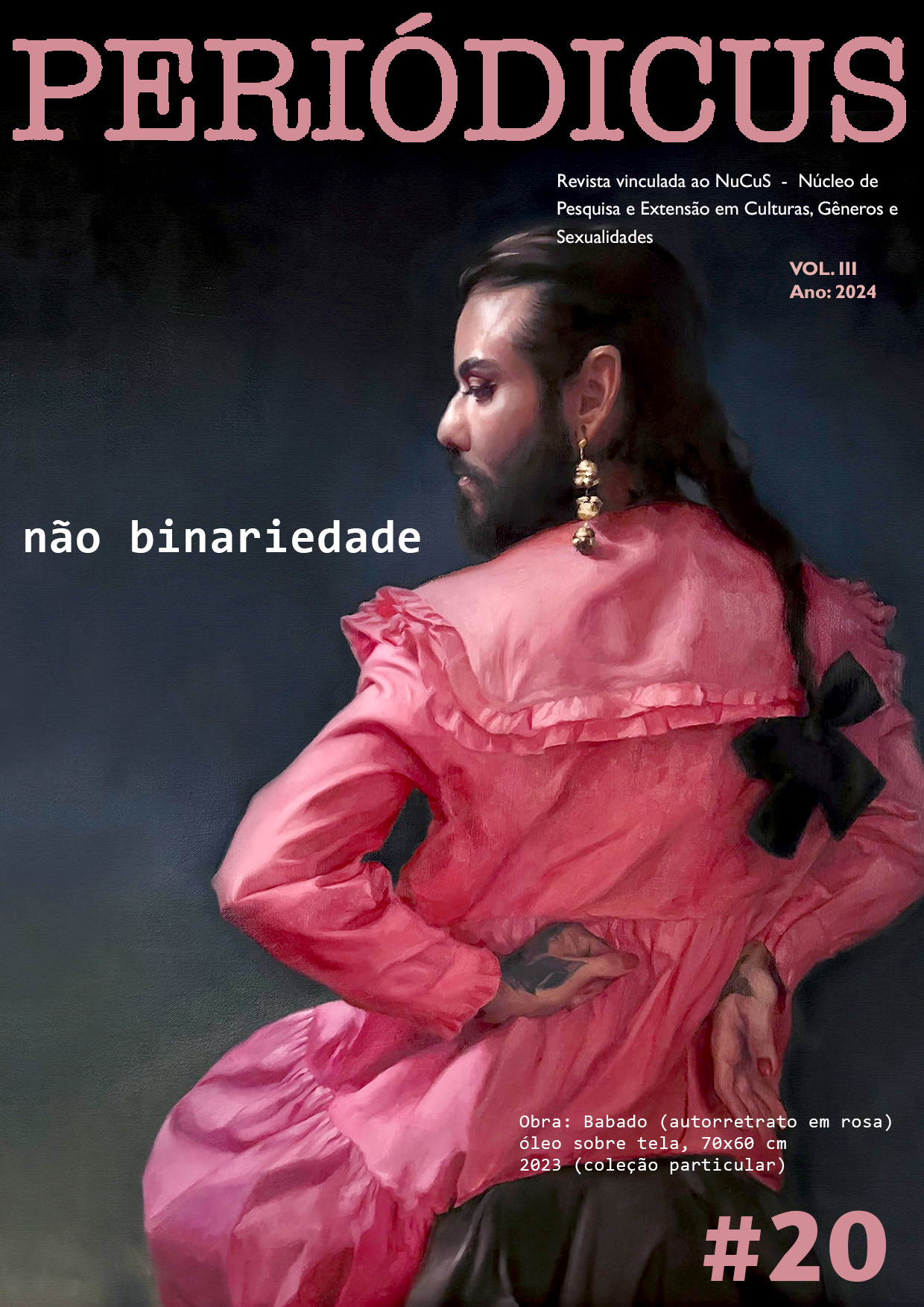The pink danger
deimopolitics in the Brazilian cisgender-heterosexual-military dictatorship
DOI:
https://doi.org/10.9771/peri.v3i20.53216Abstract
This paper presents a reflection on the production of fear towards sexual and gender dissidents during the Brazilian military dictatorship (1964-1988). We aim to propose and defend the concept of “deimopolitics” as a governing paradigm linked to the technologies that produce the position-subject of fearful subjects (friends) and threatening subjects (enemies). We understand “deimopolitics” as a mode of power responsible for socially and historically selecting which bodies are to be feared and which bodies deserve compassion. To this end, we analyze the sexual and gender policies radicalized by the military dictatorship as both a strategy of social control and a justification for the social necessity of this dictatorial regime. By mobilizing fear and hope, intra-state instances incited the production of a position-subject citizen essential to the totalizing neoliberal-dependent nationalist project that shaped and constituted the sociopolitical framework (liberal democracy) that endures in Brazilian society.
Downloads
Downloads
Published
How to Cite
Issue
Section
License
Copyright (c) 2024 Rick Afonso-Rocha

This work is licensed under a Creative Commons Attribution-NonCommercial 4.0 International License.
Autores que publicam nesta revista concordam com os seguintes termos:
Autores mantêm os direitos autorais e concedem à revista o direito de primeira publicação, com o trabalho simultaneamente licenciado sob Licença Creative Commons Attribution Noncommercial que permite o compartilhamento do trabalho com reconhecimento da autoria e publicação inicial nesta revista, sendo vedado o uso com fins comerciais.
Autores têm autorização para assumir contratos adicionais separadamente, para distribuição não-exclusiva da versão do trabalho publicada nesta revista (ex.: publicar em repositório institucional ou como capítulo de livro), com reconhecimento de autoria e publicação inicial nesta revista.
Autores têm permissão e são estimulados a publicar e distribuir seu trabalho online (ex.: em repositórios institucionais ou na sua página pessoal) a qualquer ponto antes ou durante o processo editorial, já que isso pode gerar alterações produtivas, bem como aumentar o impacto e a citação do trabalho publicado (Veja O Efeito do Acesso Livre).







